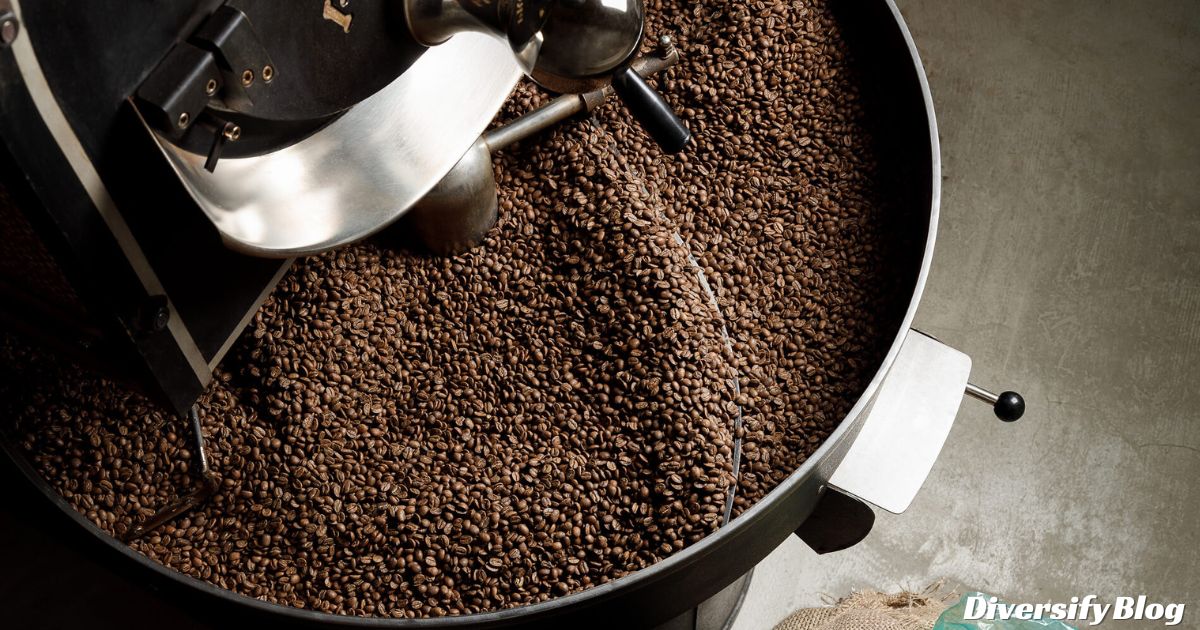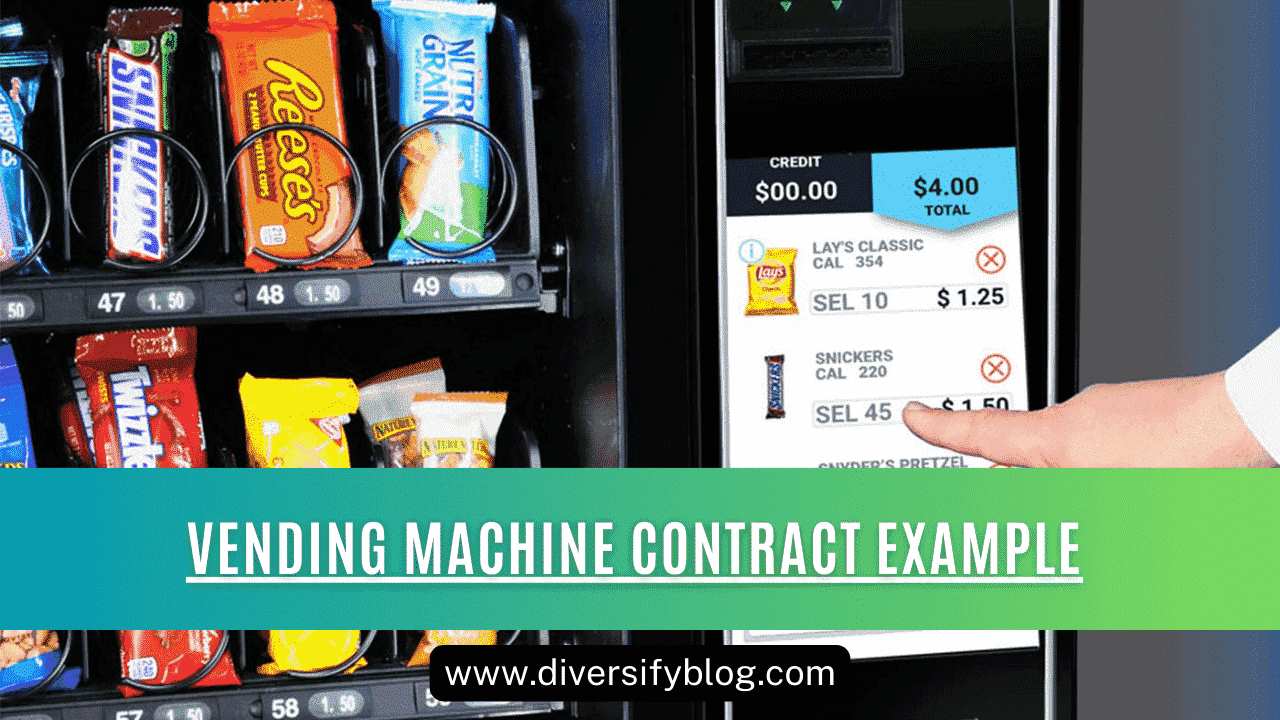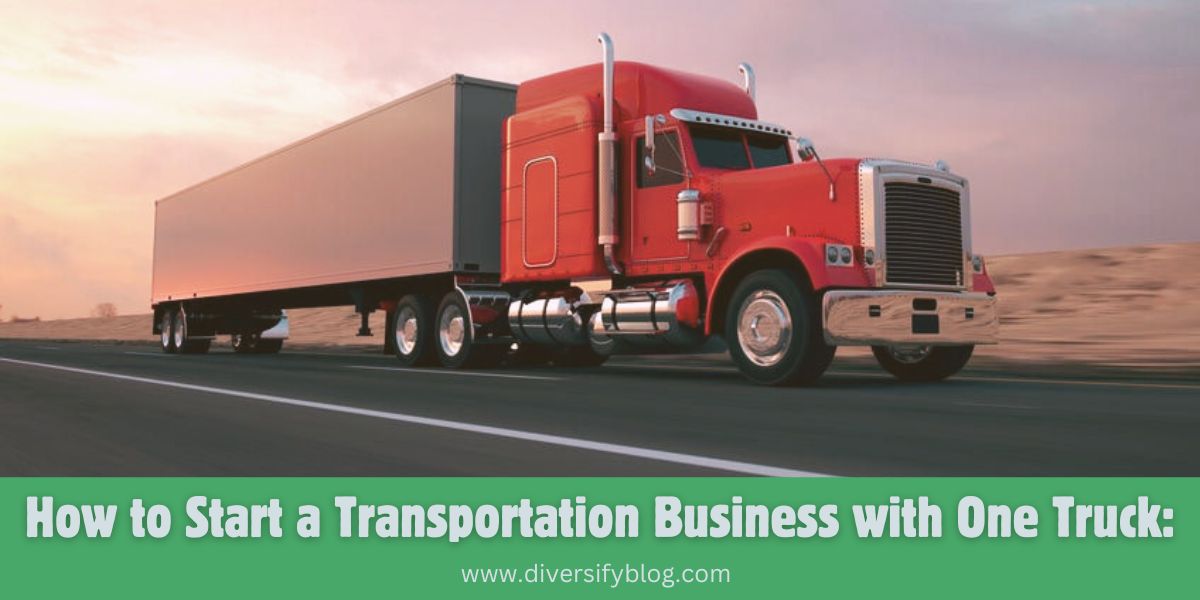Introduction:
Hello, other coffee fans! Are you interested in starting your coffee-making business in the United States but need to know how to begin? You’re in the right place now. This guide will teach you everything you need to know to start a coffee roasting business in the United States. You can turn your love of coffee into a profitable business.
Beginning a coffee roasting company is an exciting journey, but it can also be scary if you need help knowing where to start. This is where we come in. This guide contains useful tips, step-by-step instructions, and expert information to help you get started on the right foot, no matter how much you know about coffee or how new you are to roasting.
We’ll help you with everything, from ensuring you know the law and setting up your roasting business to finding good coffee beans and building your brand. We will also advise you on how to run a successful business in the tough coffee industry, avoiding common mistakes and making the most available opportunities.
Get your favorite mug and a fresh cup of coffee ready, then let’s start. After reading this guide, you’ll be able to roast some tasty coffee beans and tell everyone about your love of coffee. Allow us to begin!
Table of Contents
Understanding the Legal Requirements:

Good morning, everyone! Before getting into the fun world of roasting coffee, we must take care of some important law matters. Some people might not find this exciting when they first start a business but trust me; it’s very important to get it right.
Getting the Licences and Permits, You Need:
The first thing we should do is talk about permissions and licenses. You know, the important papers. A coffee roasting business needs to be real, like any other company.
A business license is like a golden ticket that lets you officially do business. Talk to your local government to find out what you need to do. The process is usually easy, but it depends on where you are.
Sign up with the FDA: The FDA is in charge of ensuring that our food is safe. They also want to know about the coffee roasting business you run. Luckily, their website lets you sign up online. You can go now that you’ve filled out the forms.
EPA Permit for Rules About Air Quality: You might not have considered this one, but it’s important. Some toxins come from roasting coffee, and the EPA wants to ensure we’re not making the air dirty. That depends on where you are and how big your business is. You may need a permit or follow some rules to keep the air clean.
To register with the FDA:
Yes, we’re back to the FDA. Food safety is important to them, which is a good thing. It’s easy to register your roasting plant with them. Fill out the forms online. It’s also important to remember to renew your license every two years.
Business certs and licenses from the state and local government:
This is where things get a little harder. A food business might have to follow different rules in each place or state. You may need extra permits or licenses to handle and keep food safe. You should talk to the health service in your area to find out what you need.
Other Things to Think About:
Finally, here are a few more things to remember before we go. To protect yourself and your business, make sure you have protection. Also, remember these things! These are things that every small business has to deal with, even though no one likes them.
Okay, now we’re done with the legal stuff. It could be a more exciting subject, but you must get it right. After taking care of all the papers, we can do something fun, like roasting some tasty coffee!
Setting Up Your Roasting Operation:
Okay, now that we’ve discussed the law, let’s talk about how to set up your roasting business. This is where the magic takes place, folks!
Picking Out the Right Tools:
First things first, you’ll need some stuff. Things like roasters, crushers, and more come to mind. What kind of tools you need will depend on how big your business is and how much money you have.
Roasters, this is what your business is all about. No matter how big or small, many types of roasters are on the market. Look around until you find one that meets your wants and fits your budget.
Grinders: After roasting the beans, you must grind them before making the coffee. Again, there are a lot of choices, from simple hand grinders to high-tech electric ones. Pick one that goes with your style.
Machines for packaging: You’ll need a way to package your coffee if you want to sell it. There are machines, from easy ones that seal bags to ones that do the whole process for you.
Figuring out how much it will cost to start up:
Let’s talk about money now. It’s not cheap to start a coffee roasting business, but also possible. To give you an idea of how much it will cost, here it is:
Roasting equipment: This will cost you the most. There are a lot of different sizes and styles of roasters that can cost anywhere from $10,000 to $100,000 or even more.
As well as grinders and other tools, remember the different things you’ll need, such as storage bins, packaging machines, and grinders. These can also add up, so plan your spending well.
Costs of doing business: Things like rent, utilities, and tools you need daily should be remembered. These prices may change based on where you are and how big your business is.
Setting up your roasting area:
Okay, you’re ready to set up shop now that your gear is ready. The room you need should be big enough to fit your roaster and other tools and a place to store your green coffee beans and roasted coffee.
Location: Consider where you want to put your roasting plant. You will need to be close to utilities like water and power, and the building should have good airflow to deal with the smoke from the roasting process.
Layout: Once you’ve found the right spot, you must plan how to arrange your space. There needs to be space for your coffee roaster, grinders, boxes, and everything else that comes with having a coffee roasting business.
Okay, everyone. That’s the bare minimum you need to do to start cooking. It takes a lot of work, but trust me, it’s worth it when you roast your tasty coffee beans!
Sourcing Quality Coffee Beans:
Okay, coffee fans. Now that we’ve figured out how to roast the beans, it’s time to talk about the real star of the show: the beans. Here’s how to get the best coffee beans for your business:

Finding Suppliers You Can Trust:
Finding dependable sources is the first thing you must do to get good coffee beans. People who love coffee as much as you do and can regularly give you high-quality beans are the ones you want to work with.
Direct Relationships: Some coffee roasters like to work directly with coffee farms to get the best beans possible by cutting out the middleman. This could be a great choice if you’re ready to put in the time and work to get to know farmers.
Green Coffee Brokers: You can work with green coffee brokers instead of going directly with coffee farms if you need more time. These are businesses whose main job is to connect coffee roasters with coffee farmers worldwide. They can help you discover the best beans for your coffee shop.
Learning About Coffee Varieties and Growing Areas:
There are a lot of different kinds of coffee. There are many coffee plants, and each one makes beans that taste and behave in other ways. The location where the beans are grown can also make a big difference.
Types of Plants: Some are renowned for their strong, fruity tastes, while others are admired for their chocolatey depth. Discover and try various types to discover the ones that suit your and your customers’ tastes the most.
Growing Places: If you grow coffee beans in the right place, they will take on the qualities of that place, just like wine does. Beans from Brazil may taste sweeter and chocolateier than beans from Ethiopia. Knowing where beans are grown can help you choose the right ones to buy.
Making connections with coffee farms or brokers:
Building strong ties with your suppliers is important, whether you buy from coffee farms directly or through green coffee brokers. This not only makes sure you get the best beans, but it also helps support coffee farming methods that are good for the environment and people.
Communication: Make sure you can talk to your sources easily. You should tell them what flavors and quality standards you want and be ready to give and receive feedback.
Being honest: Being open about where your coffee beans come from is very important. Tell your sellers the truth about where their beans come from and how they’re grown. To ensure that your beans are properly sourced and good for the environment, look for labels like “Fair Trade” and “Organic.”
Okay, coffee lovers. That’s all you need to know about getting good coffee beans for your roasting business. If you have the right beans, you can make some tasty coffee!
Mastering the Art of Coffee Roasting:
Okay, everyone. We have some great beans, so it’s time to roast coffee. Get ready to become a coffee magician and learn how to roast coffee:
Options for education and training:
Roasting coffee takes a lot of love, science, and art. There are many ways to learn, no matter how experienced you are or how new you are:
Formal Classes: Some schools that teach how to roast coffee offer hands-on classes where you can learn from professionals how to do it right. The topics in these classes range from simple roasting skills to more complex flavor profiling.
Online classes: If you can’t make it to a real roasting school, don’t worry. You can find a lot of lessons and tutorials online. This class covers many different topics, from the basics of roasting to more advanced methods like testing and sample roasting.
Apprenticeships: You could also learn on the job by working as an assistant for a roaster with more experience. Through this method, you can learn from someone who has already done it and improve your skills in a real-life situation.
Getting to know roasting profiles and methods:
Let’s talk about cooking now. You can’t just put some beans in a roaster and press go. Know this:
Profiling the Roast: Each coffee bean has its flavor, and it’s your job to bring out the best in each one. To find the best mix of flavors, try roasting the beans for different amounts of time and at various intensity levels (light, medium, dark).
Techniques for cooking: You can use different cooking techniques depending on the flavor you want. You could try a slow and steady method for a smooth and mild roast or a fast and intense method for a strong, full-bodied roast. Change how you do things until you find the one that works best for you.
Trying Out Different Levels of Roasting:
When you roast coffee, you have to try new things. Do not be afraid to think outside the box and try new things:
Before you start cooking many beans, it’s a good idea to do a few small ones first. Before committing to a full batch, you can try different cooking methods on different beans this way and see which ones work best for you.
Using cups: Using cups is a fancy word for drinking. Professional coffee drinkers often do this to judge the taste and quality of coffee beans. A cupping session with newly roasted beans is a great idea. Ask friends or other coffee lovers to join you. Compare your notes and determine what flavors and traits stand out.
Okay, coffee lovers, that’s all you need to know to become a great roaster. You’ll be roasting some seriously great coffee in no time if you put in a little work and love.
Building Your Brand and Marketing Strategy:
Okay, coffee lovers. Now that we know how to roast the perfect bean, it’s time to tell everyone about our hobby. To market your coffee roasting business and build a strong name, follow these steps:
Picking a Name and Style for Your Business:
Let’s start by giving our company a name and a face. The name and image of your business are the first things people will see, so make sure they show what your brand is all about:
Name of Your Business: Be creative and create a name that fits your business well and is easy to remember. Make sure it speaks to your audience, whether quirky and fun or classic and classy.
Logo: Your logo is like the signature of your business. It should be unique, catchy, and easy to remember. Whether you hire a creator or try to do it yourself, make sure your logo shows who you are as a brand and what makes you different from others.
Making a website and being visible online:
Every business needs to have a strong online footprint in this digital world. To begin, follow these steps:
Website: Your website is like an online shop, so make sure it looks good, gives useful information, and is simple to use. Include information about how you make your coffee, what kinds of coffee you sell, and how people can buy your goods. Remember to add good shots of your beans that show them off in all their glory.
The Internet: Social media is a great way to connect with your audience and get more people to know about your brand. Pick platforms your target audience likes, like Instagram, Facebook, Twitter, or more. Then, share deals, look behind the scenes at how you roast coffee and review customer reviews.
Setting up sales channels: If you sell directly to customers or in bulk,
Let’s talk about sales now. You can sell your roasted coffee beans in a few different ways:
Direct to Consumers: You can build a personal relationship with your customers and set your prices when you sell directly to consumers on your website or at local craft shows and farmers’ markets. You also see the happiness on people’s faces as they take their first sip of your tasty coffee.
Wholesale: You can reach more people and grow your business faster by selling bulk to stores, restaurants, and bars. Talk to people who might buy from you in bulk and give them free samples of your coffee to try. Once you have a few clients, work on making ties with them and giving them great service.
Okay, coffee experts. That’s all you need to know about marketing and building your brand for your coffee roasting business. If you’re creative and love coffee, you’ll be well on your way to telling everyone about it!
Navigating the Business Landscape:
Okay, fellow coffee lovers. Now that our name is known and our beans are roasting let’s talk about how to run a business. Know this:
Know the competition and market trends:
Since the coffee business is always changing, it’s important to know what’s going on in the market and keep an eye on your rivals:
Market research: Learn about the latest market trends, such as customer tastes, new coffee varieties, and the most popular coffee-making methods. That way, you’ll be able to stay ahead of the curve and make sure your products are what people want.
Analysis of the competition: Watch out for big and small rivals and determine what makes your business unique. Make sure you talk about what makes you different, like your unique way of cooking, your dedication to being environmentally friendly, or your great customer service.
Setting competitive prices:
Setting prices is necessary for a business, but it can be hard. To find the sweet spot, do the following:
Cost Analysis: Look closely at your costs, such as labor, green coffee beans, packing materials, and other overhead costs. Ensure your goods’ prices cover your expenses and leave you with a profit.
Market Analysis: Find out how much other similar goods are selling on the market and use that information to decide how much to charge for yours. When you set your prices, consider quality, branding, and how customers see your business.
Handling Stock and the Supply Chain:
Last but not least, let’s talk about managing goods and the supply chain:
Managing your inventory: Keep an eye on your stock levels to ensure you always have enough beans to meet customer needs. Use inventory management tools to keep track of your stock, predict demand, and avoid running out of items.
Improve the Supply Chain: Keep in touch with your sources to ensure the supply chain runs smoothly and quickly. This means setting up clear lines of contact, monitoring how well suppliers are doing, and handling any problems before they happen.
Okay, coffee lovers, that’s all you need to know about getting around at work. You can take your coffee roasting business to the next level if you know how to read market trends, set competitive prices, and keep track of your supplies well.
Tips for Success and Pitfalls to Avoid:
Okay, coffee business owners, we’re almost done. But before we go, let’s talk about some things you can do to be successful and things you should not do:
Making sure quality control standards are met:
When it comes to coffee, quality is very important, so make sure you keep high standards during the roasting process:
Ensure that your roasts are always the same so that every batch of coffee is of the same quality. Time, temperature, and other factors must be carefully watched while the coffee is brewing.
Quality Control: Use quality control procedures to look for mistakes and ensure that only the best beans are in your final product. This could include looking at it, touching it, and tasting it.
Making customers stick with you:
People who buy from you are what keep your business going, so make sure you build strong ties with them and keep them coming back for more:
Wonderful customer service: Your clients will return if you treat them well. Offer quick and helpful service, answer questions and feedback right away, and go above and beyond what they expect.
Engagement: Use social media, email newsletters, and other methods to contact your users. Show them what you do behind the scenes as you roast the coffee, offer discounts and special deals, and listen to their feedback to improve your products.
Dealing with Problems in the Industry:
It’s not always easy to run a coffee roasting business, but if you’re persistent and determined, you can get through anything:
Competition: There is a lot of competition in the coffee business, but don’t let that scare you. Pay attention to what makes you different and make the most of that.
Changes in the market: The price of coffee can change because of weather, unstable governments, and changes in demand. Keep an eye on how the market changes, and be ready to change how you price and source your products if necessary.
Okay, coffee lovers, that’s all we have to say about our success tips and mistakes you should not make. If you care about quality, want to build strong ties with customers, and are ready to face challenges, you’ll be well on your way to a successful coffee roasting business. That’s great!
Conclusion:
To sum up, starting a coffee roasting business in the United States takes hard work, a strong desire to succeed, and a deep understanding of the many complicated steps that need to be taken. This guide has given you all the information you need to start this exciting business, from understanding the legal requirements to becoming an expert roaster and building a strong brand. Always remember to stay true to your goal, see challenges as chances to grow, and enjoy every step of the way. If you work hard and love coffee, your coffee roasting business will do well and make coffee lovers worldwide happy.

Frequently Asked Questions:
Is coffee roasting a profitable business?
Yes, coffee roasting can be a profitable business if done effectively. The profitability depends on various factors, such as the quality of the coffee beans, the efficiency of the roasting process, branding, marketing strategies, and market demand. Many coffee-roasting businesses have found success and profitability with the right approach and dedication.
How much do Coffee Roasters make in the U.S.?
The income of coffee roasters in the U.S. can vary widely depending on factors such as experience, location, the scale of the operation, and business success. According to data from the U.S. Bureau of Labor Statistics, the median annual wage for food batchmakers, which includes coffee roasters, was around $30,080 as of May 2020. However, skilled and experienced coffee roasters who own their businesses or work for high-end specialty coffee companies may earn significantly higher incomes.
Are coffee roasters in demand?
There is a demand for coffee roasters, especially in the specialty coffee industry. As consumers become more interested in high-quality, artisanal coffee experiences, the demand for skilled coffee roasters who can produce exceptional coffee beans has increased. Additionally, with the rise of independent cafes, specialty coffee shops, and online coffee subscription services, there is a growing need for unique and flavorful coffee offerings, driving the demand for skilled coffee roasters.
What business category is coffee roasting?
Coffee roasting typically falls under the food and beverage industry, specifically within the coffee industry sector. It can be categorized as a specialty food business, as it involves the production of specialty coffee products through roasting coffee beans. Additionally, coffee roasting companies may be classified as small businesses or entrepreneurial ventures, depending on the scale and structure of the operation.



















